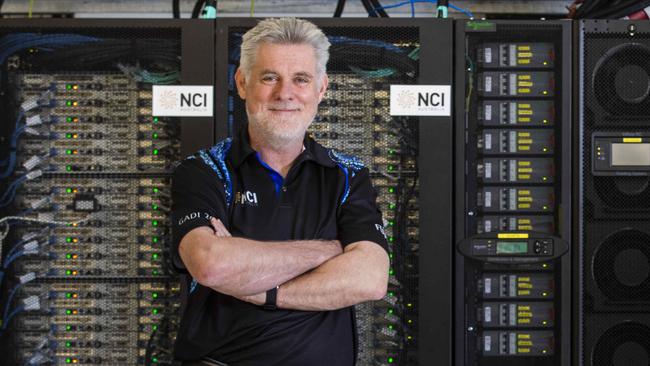Deep staff turmoil emerges amid Sean Smith v ANU Federal Court case
Sean Smith has taken ANU to court after a protracted HR process turned him, he says, into ‘a ghost’. However, a letter shows staff raised concerns about the professor’s behaviour in 2023.

The deep turmoil among staff at Australian National University’s high-performance computing facility, who alleged widespread bullying and harassment, has come to light after its former director took the university to the Federal Court over an unfair dismissal claim.
A letter, released under an Freedom of Information laws to ANU, shows the National Tertiary Education Union reported staff concerns about “behaviour and work culture” at the largely publicly funded National Computational Infrastructure to ANU in October 2023, which included allegations of “widespread … hazards” such as bullying, harassment and “inconsistent, unfair, discriminatory or inequitable management decisions”.
The Australian understands the NTEU spoke to about a dozen current and former staff, and many of the concerns raised by them related to then-director Sean Smith’s behaviour and leadership.
Concerns were also raised about other senior figures at the NCI.
Professor Smith has recently taken ANU to court for economic loss and damages, having reported bullying at the executive level – namely, by the head of ANU human resources – following a protracted and ambiguous investigation process into a complaint made about him. He says he was later terminated for “performing his duties” and raising complaints against ANU.
Professor Smith began at NCI in January 2018 and was terminated in December 2024 because ANU “lost trust” in his leadership.
The NTEU letter sent to the then deputy vice-chancellor (Research & innovation), Keith Nugent, noted the “extremely high staff turnover, including a disproportionately high turnover of women staff members” in recent years, as well as multiple staff members “on leave due to work-related stress” who had suffered “psychological injury (including very serious psychological injury)”.
It claimed ANU had failed to meet its duty of care under the Work, Health and Safety Act, which fell under Professor Nugent’s remit.
The NTEU also alleged Professor Smith “altered” a risk assessment, which The Australian understands addressed work health and safety hazards such as bullying, poor relationships and workplace conflicts, “to inappropriately minimise the likelihood, consequence, and risk rating for most risks”.
Other concerns raised were about alleged “conflicts of interest” related to a contract with a procurement company at which Professor Smith’s spouse was the outreach manager, including that it was favourable to continue her employment amid their impending divorce settlement.
The Australian understands ANU found no evidence of a policy breach in relation to the “probity concerns”.
By the time the letter was sent, ANU had already commenced an initial investigation surrounding complaints made by the deputy director “which alluded to (Professor Smith) contributing to psychosocial hazards in the workplace”, according to Professor Smith’s statement of claim to the Federal Court.
Professor Smith said the deputy director’s gripe followed the “performance management” process a year earlier, which he was requested to do by ANU HR, and where he concluded “instances of serious misconduct”.

ANU’s investigation into Professor Smith found “allegations of serious misconduct” but the university refused to provide him with details.
He previously told The Australian he had a right to defend himself against accusations.
Professor Smith launched proceedings with the Fair Work Commission to discover the details but the ANU soon withdrew the allegations, and the FWC proceedings were dismissed.
However, a day later ANU “commenced a further investigation into (Professor Smith)” via a WHS independent review by a law firm.
This drawn-out investigation process into the allegations led Professor Smith to make a “complaint to (ANU) regarding the bullying by (chief people officer) Kate Witenden and (deputy vice-chancellor of research and innovation) Lachlan Blackhall, which resulted in psychological injury”, his statement of claim says.
The October NTEU letter also alleged “poor workplace relationships or interpersonal conflict between colleagues” and “frequent disagreements, disparaging or rude comments, either from one person or multiple people, such as from clients or customers”, lack of role clarity and “poor support” including practical and emotional support from managers.
Professor Smith was fired in part because had failed “to recognise or address the manifestation of psychosocial hazards within the NCI” but he argued in his statement of claim he was “not required by the WHS Act nor the WHS policy to undertake these responsibilities”.
The Australian understands the ANU did not respond in writing to the letter but was aware of the issues raised. In a statement, ANU said “as the matter is before the Federal Court, the ANU will not be commenting”.
Professor Smith’s lawyer indicated he did not have anything further to say.



